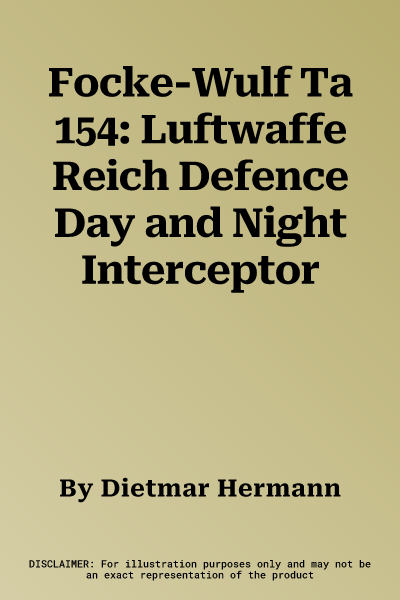The Ta 154, one the Third Reich's most advanced night fighters. It was
created by Professor Kurt Tank, designer of the Fw 190, and a small team
of superlative designers and engineers. The Ta 154 combined
state-of-the-art technology with elegant aerodynamics to create an
innovative and potent warplane.
Inspired by the British de Havilland DH 98, in 1943, the German Air
Ministry issued a specification for an all-wood, fast attack-bomber to
be powered by Jumo 211 engines. Focke-Wulf was awarded the contract and
employed inventive construction methods for the wooden assembly. Instead
of a Schnellbomber, the resulting Ta 154 would emerge as an experimental
night fighter incorporating ejection seats, advanced avionics and radar.
Dubbed the Moskito, it first flew in July 1943 and when pitted against
the He 219 and Ju 388 proved faster, reaching around 700 km/h.
This is a significantly revised and expanded version of a book
originally published with a small print run in 2006 in the German
language, so it will be new to Anglophone readers. It is an absorbing
account remarkably sophisticated German World War II aircraft on which
relatively little has hitherto been published. The author dispels myths
associated with the construction methods of the Ta 154 and reveals much
new and intriguing information about this fascinating aircraft.

